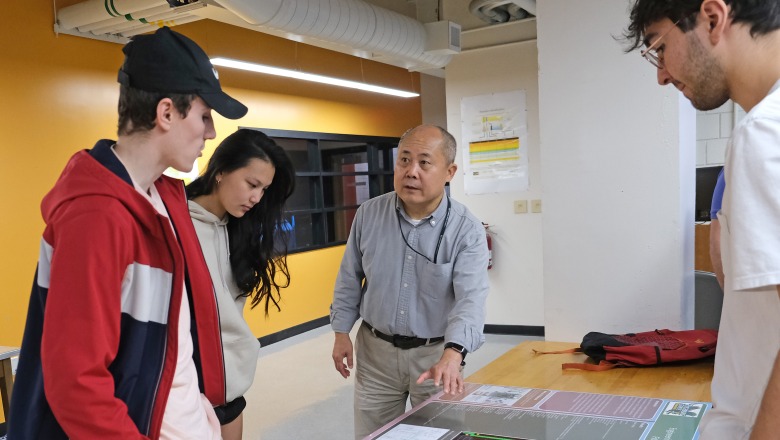
Fitchburg State University has received a $1 million grant from the National Science Foundation that will provide scholarship support and mentorship for academically talented students in science, technology, engineering and mathematics.
The grant will build upon the pedagogy of “real talk” initiative, organized around themes raised in “The Pedagogy of Real Talk: Engaging, Teaching, and Connecting With Students At-Promise” by Dr. Paul Hernandez, a nationally recognized educator and consultant who has presented at Fitchburg State. The initiative is designed to improve retention and career success by fostering deeper connections between students, faculty and staff members. The evidence-based approach is built upon engaging, teaching, and connecting with students at promise, or students who are prone to drop out, combining a focus on the delivery of content with an understanding of the student as a whole human being. The approach seeks to create an inclusive and student-centered learning environment, a classroom climate and culture where students feel safe, known, and valued.
“We are grateful for the NSF’s support of this ongoing initiative to support student success in critical STEM fields,” Fitchburg State President Richard S. Lapidus said. “We have seen the benefits of the ‘real talk’ approach across academic disciplines, and look forward to creating additional opportunities for participating STEM students.”
“Through this project, we aim to build institutional capacity for an inclusive and asset-based pedagogical approach to support domestic, low-income STEM students with academic ability, talent, or potential, and with demonstrated unmet financial need,” said Associate Professor Nirajan Mani, chair of the university’s Engineering Technology Department and the principal investigator for the grant.
The newly-funded initiative will include the recruitment of four cohorts of low-income, academically talented students from eligible STEM majors, based on criteria such as academic talent, interest, motivation, and communication skills. The objective of the program is to improve retention and graduation rates for this student population above 80% and 60%, respectively, within five years for first-time, full-time students, and improve transfer graduation rates to 65% within three years.
Mani said the program will enhance existing efforts to support students through seminars, mentorship ladders, and career-based internship and research activities, facilitating career placement in STEM fields and building a pathway for graduate programs to support high-need communities and jobs of the future.